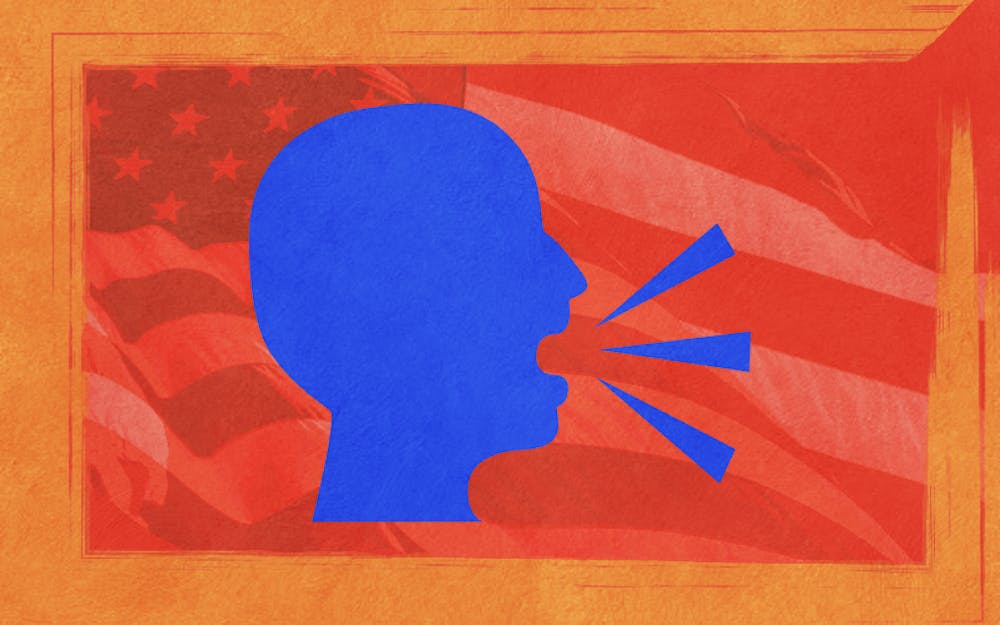Today, televised presidential debates have become a staple during election season. The accessibility and availability of technological platforms allow candidates to pitch their ideas and policies to the American people, allowing the country’s citizens to stay informed and updated on which candidate best represents their interests. However, since the first nationally televised presidential debate between Nixon and Kennedy in 1960, the structure, purpose, and administration of debates have dramatically changed. However, as the 2020 election is fast approaching, presidential debates have become less valuable.
Televised debates, although intended for the discussion of current political events, have given the American audience various outlets to become distracted by, ranging from appearance to mannerisms and delivery. The audience watching the first debate on television immediately fixated on how the 1960 Democratic and Republican nominees looked—Kennedy, young and charismatic, exuded confidence and strength, while Nixon, who was recovering from a recent hospitalization, came across as weak and nervous to the American public. After that inaugural debate juxtaposed the candidates, there were three more to go before the election, but this negative image of Nixon eventually followed him to his defeat. The goal of having debates—allowing candidates to share their political opinions and policy proposals—became overrun by spectacle instead of substance. This issue still permeates modern televised presidential debates.
These events are now widely remembered for their compact moments of entertainment—think gaffes, one–liners, or mistakes made by the candidates. In the 1976 debate between Gerald Ford and Jimmy Carter, Ford mistakenly said, "There is no Soviet domination of Eastern Europe and there never be will under a Ford administration. ... I don't believe the Poles consider themselves dominated by the Soviet Union." This caused TIME to write their headline, “The Blooper Heard Round the World.” Then, in Ronald Reagan’s and Jimmy Carter’s debate in 1980, the American public best remembers Reagan for his one liner, “There you go again,” in response to Carter’s attack on his national healthcare stance. And, in the case of modern debates, viral instances where a candidate falters are all the more frequent. Take the 2012 presidential election of Mitt Romney vs. Barack Obama as an example, when Romney’s statement of "binders full of women" effectively portrayed him as someone who dehumanizes women.
In the grand scheme of political debates, Americans tend to cling to aspects of entertainment, and rarely remember actual talk of policy. Debates have taken on the role of political theater, in which the American public is looking for someone who can “perform” best in the spotlight. Trump, a testament to what the general audience is looking for in terms of entertainment, has completely revolutionized the way presidential debates are conducted and analyzed. Ever since his first appearance in the 2016 debate, the candidate was more intent on making the audience laugh with insults and quips than offering substantial perspectives on urgent issues. He carries himself less as an esteemed politician with an agenda and more like a conservative talk radio host.
In the first GOP presidential debate of the 2016 season, Donald Trump, a former reality TV star, used his background as an entertainer to his advantage. When Trump was questioned about his previous vulgar comments on women, calling them “fat pigs, dogs, slobs, and disgusting animals," Trump responded with: "Only Rosie O'Donnell." Not only does he interject with such retorts—these jabs have become parts of his persona, such as interrupting other candidates with his classic “wrong.” He's managed to normalize uncivilized insults directed towards other candidates, turning debates into verbal boxing matches.
Even now, in the first 2020 presidential debate between Trump and Biden, CNN said that “Trump bullied, bulldozed and obfuscated his way through the 90–minute showdown...He ignored substantive questions and Biden's policy arguments, and instead swung at a straw–man version of Biden.”
So how does this current conduct of presidential debates affect the current political atmosphere? Not only are the substantial issues that Americans desperately need information about not being addressed, like COVID–19 and concerns over racial justice, the public has lost faith in America’s political leaders. What the current American political debate system desperately needs is a restoration, a return to a more civilized manner of debate. Debates need to once again fulfill their purpose as a way for candidates to showcase their political agendas regarding relevant issues. They have to serve America once more.

